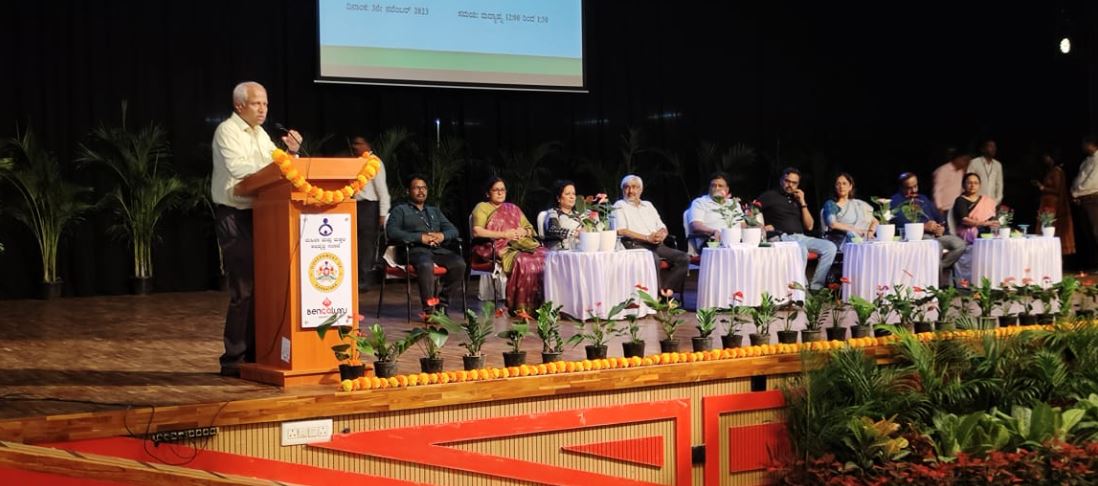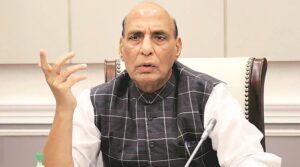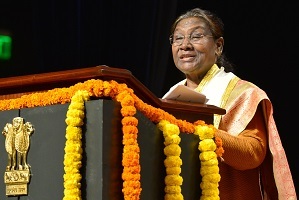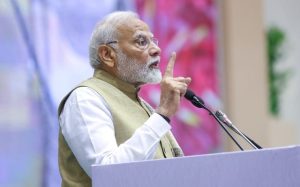An Inclusive Sustainable Horticulture Centre has been inaugurated for the residents of the Correctional Institutions Complex, Bengaluru on Friday, November 3. A facility that houses individuals with diverse needs, including those with intellectual disabilities, vulnerable women, and children rescued from abuse, abandonment, forced labour, and similar unfortunate circumstances, the Correctional Institutions Complex has seven homes in total and over 400 residents.
 |
The Association of Disability welcoming representatives from the Department of Women and Child Development, the Government of Karnataka, and Bosch Global Software Technologies
The horticulture project is the result of a tripartite Memorandum of Understanding (MoU) signed between The Association of People with Disability (APD), the Department of Women and Child Development, the Government of Karnataka, and Bosch Global Software Technologies in March this year. Situated inside the Government Institutions Complex, Dept. of Women and Child Development, near KIDWAI Hospital, the centre aims to provide a holistic multidimensional program through the project that includes setting up of an inclusive and sustainable horticulture centre which would assist in providing skill training, therapy, environmental education and wet waste management services to all residents.
As a strategic partner and Corporate Social Responsibility (CSR) donor for the co-creation of the Inclusive Sustainable Horticulture Centre, Bosch provided inputs for the expansion of the project scope to include eco-therapy services for People with Intellectual Disabilities, an environmental education program for children and an in-campus wet-waste management
The Association of People with Disability will take charge of executing the initiative, providing essential professional skills, personnel, technical resources and expertise on the ground.
Since beginning its activities in April this year, the program has seen the onboarding of more than 115 suitable beneficiaries, selected out of 425 residents among the seven homes in the complex. The project has also since expanded its scope to include eco-therapy for intellectually challenged individuals and environmental education for children residing at the Boys and Girls Homes within the complex.
The project encompasses an extensive area of 32,000 square feet, featuring a range of green infrastructure such as a poly house, a hardening house, a working shelter, and accessible pathways. To ensure inclusivity, an accessibility audit conducted by the APD team has facilitated easy access for all. Presently, the centre boasts over 150 varieties of mother plants, with an annual production capacity exceeding 100,000 plants. Adequate irrigation facilities, including a sprinkler and misting system, have been introduced for the poly house, promoting efficient plant growth and maintenance.
Key program components include:
- Livelihood Skill Training
- Seed to Fruit Program
- Eco Therapy
- Wet Waste Management Solution
Chief Guest Dr G.C. Prakash, IAS Secretary to Government Department of Women and Child Development Empowerment of Differently Abled and Senior Citizens Empowerment inaugurated the centre.
“As a District Officer, I visited this institute 12 years ago and today when I come and see the change that Bosch and APD have initiated, it gives me great joy. This excellent program will contribute to the inmates’ general awareness, reasoning ability, knowledge and also potentially become a livelihood opportunity for some of them,” mentioned Dr G C Prakash IAS, Secretary to the Government Department of Women and Child Development and Empowerment of Differently abled & Senior Citizen.
Speaking on the landmark initiative, Raghavendra Rao Krishnamurthy, Chief Operating Officer and Head of Strategy, Bosch Global Software Technologies Pvt. Ltd. stated, “Nurturing corporate citizenship, Bosch has steadfastly invested in the care and well-being of 400+ residents of Correctional Institutions Complex since 2017. Programmatic inputs and an inclusive approach adopted by Bosch through stakeholder consultations led to extending the scope of the program to encompass aspects of ecotherapy, environmental education and sustainable wet waste management. Volunteers from Bosch have also poured their time and energy into the development of this vibrant repository of plants.”
Dr NS Senthil Kumar, Chief Executive Officer of The Association of People with Disability, expressed, “We are honoured to collaborate with Bosch and the Department of Women and Child Welfare for setting up the horticulture centre at the Correctional Institutions Complex. We collectively aim to implement a comprehensive program that positively impacts individuals with intellectual disabilities, vulnerable women, and children rescued from abuse, abandonment, and forced labour.”
Other guests at the event included; Smt. Pushpalatha G Rayar – Joint Director PDM, Dr Usha – Joint Director ICDS, Mr Nischal B H, Deputy Director and Special Officer to WCD minister, Smt Bharati Devi – DCPO, Smt. Shilpa Deodhar, Head Corporate Social Responsibility, BGSW, Subir Hari Singh, IAS [Retd] Hon. President of The Association of People with Disability, Bangalore and Dr Siddaramanna Deputy Director, DWCD Bengaluru Urban & Nodal Officer Inclusive Sustainable Horticulture Project.
About the Association of People with Disability (APD)
APD is a pioneering non-profit organisation, established in 1959 by the late MS. N. S. Hema. APD has impacted over 6 lakh people with disabilities from underprivileged communities from remote, rural, and poor socioeconomic backgrounds. Various programs by APD cover 18 out of 21 disabilities stated in the RPWD Act 2016. With a diverse and inclusive team of over 230 members (45% women and 30% PwDs), APD reaches out to over 60,000 direct and indirect beneficiaries, annually. APD is managed by a professional team of developmental and technical experts overseen by an eminent Board of Governors and Trustees. The Association maintains the highest governance standards, has been acknowledged by multiple donors and is accredited by independent agencies like the TISS, Credibility Alliance, RCI, and NIPMAN Foundation.
![]()



